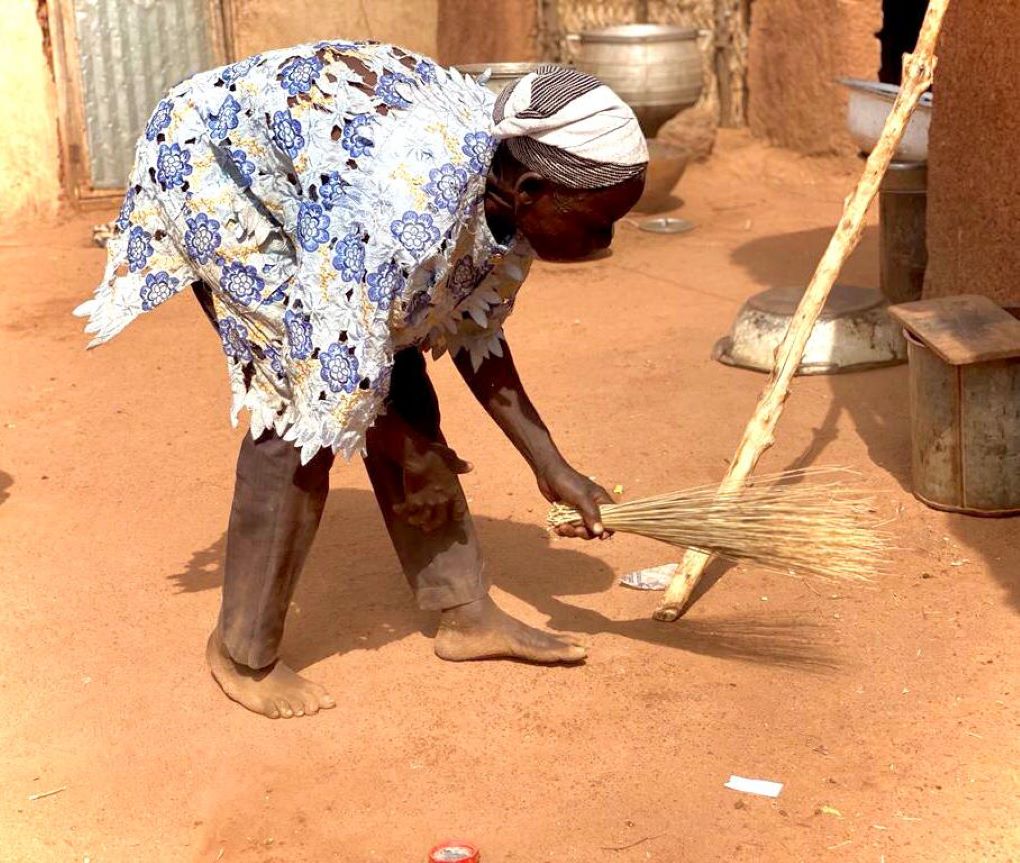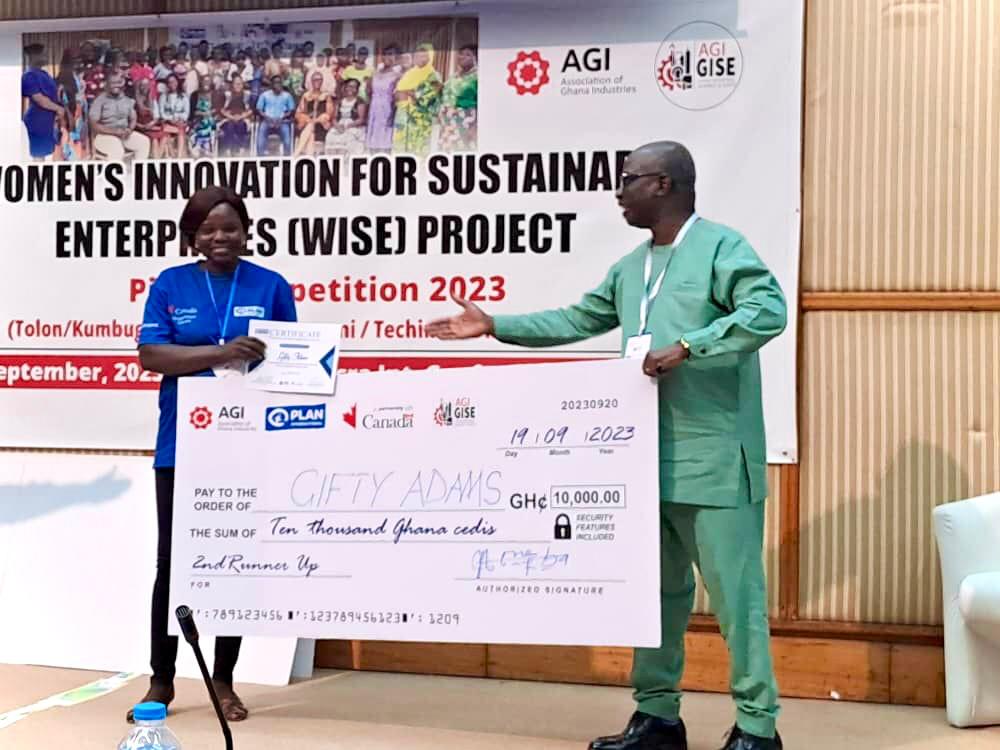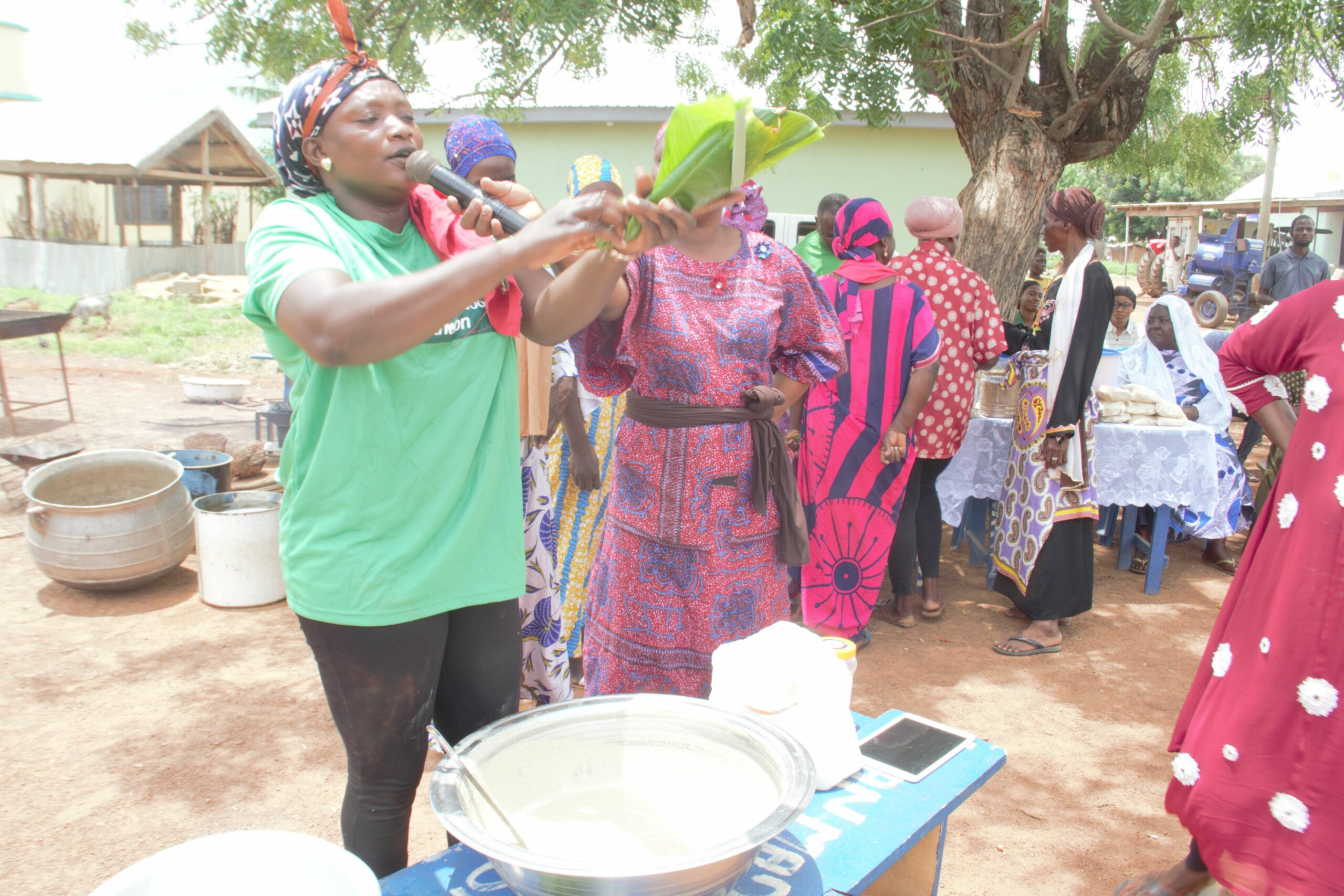As part of the WISE project implementation, challenging negative gender norms and stereotypes as well as empowering both men and women to actively participate in household chores and child care is a significant aspect. Nine males, husbands of women in the saving groups who demonstrate positive masculinity, were selected by the women themselves. These men, known as the male champions, were encouraged, through a series of training and awareness campaigns, to embrace more equitable and balanced roles within their families and communities.
Sibdoo Issahaku is one of the male champions at Kuglogu within the Tolon district in the Northern region and is trained to use his position as a man and influence to advocate for women’s economic empowerment. He is married to two wives and has eight children, five males and three females. The name Sibdoo has become synonymous with a supportive husband in the Kuglogu community. Through the project, he has been able to overcome all forms of stigma and name-calling to be a supportive partner, something that is a gnarly practice in his community.
Though hesitant in the beginning, Sibdoo attended some trainings organized by Urbanet’s WISE team and was introduced to the concept of shared responsibilities and the importance of supporting women in daily tasks. Through group discussions, role-playing exercises, and testimonies from other community members, He questioned his beliefs on gender roles.
“After receiving the training from the WISE team on partner and women’s economic empowerment, I decided to make use of the information. I started with my children, asking the males to support their sisters. Initially, they were reluctant to do that because their colleagues started calling them names. But with persistence, they are now comfortable doing all chores in the household. Whenever any of my wives delay at the market, I sweep the compound and, with the support of my children, cook for the entire family. Now my family is happier and healthier than before, and other men are now imitating me because they are seeing a difference now,” says Sibdoo.
Thanks to the WISE project and the efforts of project officers and Sibdoo’s personal growth, the Kuglogu community gradually witnessed a cultural shift, promoting gender equality and empowering individuals to challenge limiting beliefs. Sibdoo and others’ story has become a testament to the power of change and the strength of the community in creating a brighter and more inclusive future for all.



